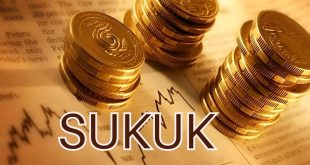 Why Is the Libor Scandal So Important to You?
Why Is the Libor Scandal So Important to You?
There have been numerous big banking scandals recently.
But the Libor scandal is the biggest financial scam in world history. See this and this.
The former CEO of Barclays said today that banks across the world were fixing interest rates in the run-up to the financial crisis .
Professor of economics and law Bill Black notes:
It is the largest rigging of prices in the history of the world by many orders of magnitude.
Indeed, the scandal effects an $800 trillion dollar market – 10 times the size of the real world economy.
Matt Taibbi explains that this is the “mega scandal of all mega scandals”, because Libor is the “sun at the center of the financial universe”, and manipulating Libor means that “the whole Earth is built on quicksand.”
Homeowners, credit card holders, students, local governments, small businesses, small investors and virtually everyone else in the entire world has been impacted by the manipulation.
Indeed, the scandal is so big that it will further destroy trust in our financial system and drive many people from investing in the capital markets altogether.
It's over for the banking cabal
Watch this video to understand the largest banking corruption scandal in history. These large banks have stolen money from every single human on the planet. Not one person was left out. Not even YOU! Now that it is exposed there is no going back. We will ALL support the "NO MORE BAILOUT" mantra…
This one will not go away. It was not planned to go away like other "banking scandals". This one will build and build and build until it is known by every man, woman and child on the planet. This is the exposure that will END the bad guys reign.
Yes, the Libor Scandal Affects You
By Jack Hough
July 06, 2012 "Smart Money" – -A liger is a cross between a lion and a tiger. Libor, on the other hand, is a daily approximation of what banks charge each other for loans.
It turns out only one of these things is real. Awkwardly, it’s not the one used to set prices on an estimated $800 trillion in global financial instruments, or $116,000 worth for each person on earth, ranging from complex derivatives to student loans. That’s a problem for holders of bank stocks – which includes just about anyone who owns a mutual fund or 401(k).
Barclays (BCS) agreed last week to pay $453 million to settle allegations that it manipulated Libor, which stands for London interbank offered rate. As The Wall Street Journal reported Thursday, it’s likely only the first: More than a dozen banks on three continents are under investigation.
Libor is compiled by asking 18 banks what they think they would pay if they needed money. Some banks may have submitted artificially low responses during the global financial crisis to give the appearance of high creditworthiness. Others may have tinkered with the reading to profit from trades, or avoid losses.
The Barclays settlement is affordable, at less than 7% of the company’s projected profits this year, but the size of legal claims it and other banks face is difficult to imagine. Trial lawyers will do their best to work out the sums, of course. Libor may have been subject to rigging for more than five years.
In Thursday trading, Bank of America (BAC) lost 3% of its stock market value, and JP Morgan (JPM), more than 4%. Investors are worried about more than possible legal claims.
The financial crisis, with its bank failures and taxpayer bailouts, led to regulatory attempts to rein in risky bank activities, even at the expense of profits. JP Morgan is now sorting through a massive trading loss–estimates range from $4 billion to $9 billion–that has raised calls for even stricter reforms.
Picture the public’s mood if the next round of losses stems, not from rogue trading gone bad, but from widespread dishonesty that pretty much had its desired effect.
Bank stocks already trade at a discount to offset some of their warts. The banking sector of the Standard & Poor’s 500-stock index sells for 12 times this year’s projected profit, versus 13 times for the broader index. The problem is that banks have gotten so complex that relying on those estimates takes deep faith.
Consider: Most analysts have trimmed their earnings estimates for banks of late, not because of the Libor scandal, but rather, because of weak investment banking trends. But on Thursday, Wells Fargo analysts boosted estimates on several big banks. Why? Because Moody’s slashed their credit ratings. See, lower bond ratings mean lower bond prices, which in turn mean that banks will record accounting gains for the hypothetical lower cost of buying back their debt.
Financials, which make up 14% of the S&P 500, have had a good year, all things considered. Before Thursday, ones in the S&P 500 were up 14% year-to-date, versus 9% for the broader index. Investors should now consider reducing their exposure to these stocks until more is known about possible liabilities connected with Libor.
For central bankers, rate-rigging may be part of the mission. For Wall Street bankers, it’s the clearest sign yet that the industry isn’t well.
Post Disclaimer | Support Us
Support Us
The sailanmuslim.com web site entirely supported by individual donors and well wishers. If you regularly visit this site and wish to show your appreciation, or if you wish to see further development of sailanmuslim.com, please donate us
IMPORTANT : All content hosted on sailanmuslim.com is solely for non-commercial purposes and with the permission of original copyright holders. Any other use of the hosted content, such as for financial gain, requires express approval from the copyright owners.
 Sri lanka Muslims Web Portal Diversity and Inclusiveness – Sri Lanka Muslims
Sri lanka Muslims Web Portal Diversity and Inclusiveness – Sri Lanka Muslims



